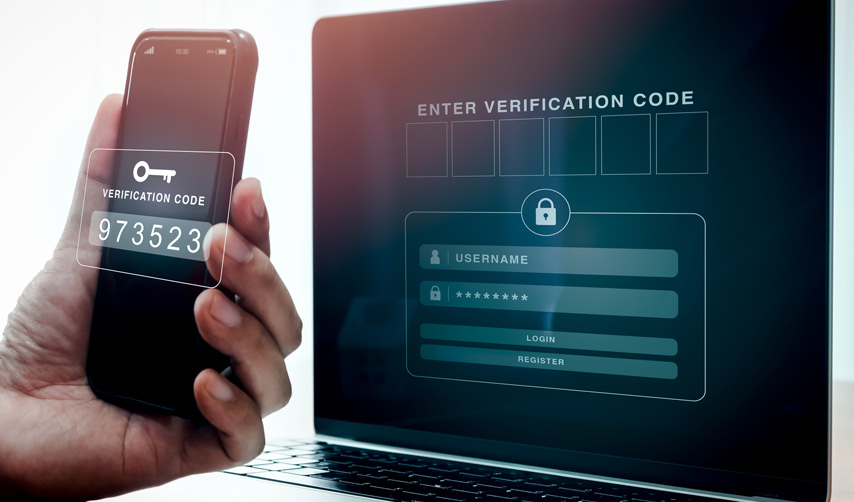Strengthening ERP Security: Why Multi-Factor Authentication (MFA) is Essential

In an era where data breaches and cyber-attacks are increasingly common, the need for stronger security measures in enterprise systems has never been more apparent. ERP systems, which house critical financial, operational, and customer data, are prime targets for cyber criminals. As businesses increasingly rely on digital infrastructures to manage their day-to-day operations, they must also evolve their security practices to keep pace with modern threats.
Multi-Factor Authentication (MFA) has emerged as one of the most effective tools in this fight, and for users of Pronto Xi ERP software, it is becoming a security imperative.
What is MFA and why it is necessary
MFA requires two or more proofs of identity to access an account, creating an additional barrier between legitimate users and cyber criminals. Typically, MFA combines a password with another form of verification, such as a code sent to your phone, a physical token, or a biometric scan like a fingerprint or face recognition.
Implementing MFA is not just about ticking a compliance box or following a trend—it’s a strategic move that directly addresses some of the biggest security challenges organisations face today.
By introducing an additional step in the authentication process and requiring users to verify their identity through two or more methods, this layered approach significantly reduces the risk of unauthorised access. Even if a password is compromised, an attacker would still need access to the user’s second authentication factor, such as their phone or fingerprint, making it exponentially harder for them to gain entry to the system.
Rethinking ERP Security
ERP systems are the lifeblood of many businesses. They centralise data, streamline operations, and enable decision-makers to manage resources efficiently. However, this centralisation also makes them a single point of vulnerability. A successful breach could provide access to sensitive business information, disrupt operations, and lead to significant financial losses. In recent years, businesses across industries have witnessed cyber-attacks that exploit weak or compromised credentials, exposing just how vulnerable ERP systems can be when only traditional password-based security measures are in place.
Relying solely on passwords is no longer enough. According to industry data, around 80% of data breaches are linked to weak or stolen passwords. Once a password is compromised, an attacker can easily move laterally within an organisation’s network, gaining access to even more critical systems and data. This growing risk has prompted forward-thinking businesses to explore more comprehensive security approaches like MFA, a solution designed to protect sensitive systems by requiring multiple forms of verification.
Pronto Software’s Leading Commitment to Security
As the digital landscape evolves, so too must the security strategies employed by businesses. What was once an optional layer of protection is rapidly becoming a necessity in a world where the cost of inaction can be catastrophic.
Recognising the growing threat landscape, Pronto Software has made MFA a key security feature for Pronto Xi, their ERP platform. From version 750 onward, customers are equipped with Identity and Access Management (IAM) solutions as part of Pronto Cloud services, offering the option to enable MFA. Starting with version 780, MFA will be a mandatory requirement, ensuring all users across the platform are protected by this enhanced security measure.
This move reflects a larger trend toward tightening cyber security measures across enterprise applications.
This adoption of MFA is a reflection of Pronto Software’s commitment to staying at the forefront of enterprise security trends. By implementing MFA as a mandatory feature, Pronto Software is proactively addressing potential vulnerabilities in ERP systems and signalling to businesses the importance of taking action before they become the next target of a cyber-attack.
The Long-Term Business Value of MFA
MFA offers more than just short-term protection. It’s a long-term investment in the resilience of your business. For companies that manage sensitive data, reputational damage and regulatory penalties following a breach can be devastating. In industries where compliance with data protection standards is non-negotiable, adopting MFA is also a critical step in meeting these requirements.
But beyond compliance and security, MFA empowers users. It transforms them from passive participants in cyber security to active defenders of their own data. With greater awareness of cyber security risks and tools like MFA at their disposal, users can take a more proactive role in safeguarding the systems they interact with daily.
Businesses that prioritise security, take proactive steps like implementing MFA, and align themselves with forward-thinking technology providers like Pronto Software, will be the ones that navigate the complexities of digital transformation most successfully.
Resources for learning on Multi-Factor Authentication
- https://cyberwardens.com.au/what-is-multi-factor-authentication/
- https://www.itro.com.au/this-is-why-the-government-is-promoting-mfa-more-than-ever/
- https://www.apra.gov.au/use-of-multi-factor-authentication-mfa
- https://www.techbrain.com.au/mfa-implementation-best-practices/
- https://www.minister.defence.gov.au/media-releases/2021-02-25/multi-factor-authentication-stronger-cyber-protection
- https://www.okta.com/au/identity-101/why-mfa-is-everywhere/
- https://www.cyber.gov.au/learn-basics/explore-basics/mfa
- https://computertroubleshooters.com.au/the-importance-of-multi-factor-authentication-mfa/




Let's stay connected
Be the first to receive our resources, including news about your industry.


